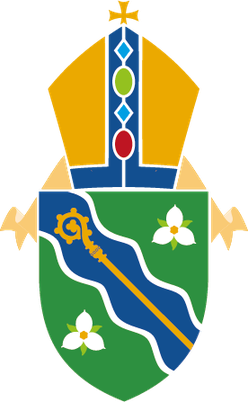
Melvin Douglas Lastman was a Canadian businessman and politician, who served as the third mayor of North York from 1973 to 1997 and the 62nd Mayor of Toronto from 1998 to 2003. He was the first person to serve as the mayor of Toronto following the amalgamation of Metro Toronto in 1998 and its six constituent municipalities. Lastman is also known for having founded the Bad Boy Furniture chain.
David Emil Neumann is a politician in the Canadian province of Ontario. He was the mayor of Brantford from 1980 to 1987 and served in the Legislative Assembly of Ontario as a Liberal from 1987 to 1990. After several years out of politics, he was elected as a city councillor for Brantford's fifth ward in the 2010 municipal election. He retired from the Brantford City Council in 2018.
Philip Andrew Gillies is a former politician in Ontario, Canada. He served in the Legislative Assembly of Ontario from 1981 to 1987 as a Progressive Conservative, and was a cabinet minister in the government of Frank Miller.

The Diocese of Niagara is one of thirty regional divisions in the Anglican Church of Canada. The see city of the diocese is Hamilton, with the bishop's cathedra located at Christ's Church Cathedral on James Street North. Located within the ecclesiastical province of Ontario, it borders the Dioceses of Huron and Toronto. The area enclosed by the Diocese of Niagara includes much of the Golden Horseshoe, and moves north to include Erin and Orangeville as far as Shelburne. Moving sharply south, the boundary includes Mount Forest and widens, south-westerly to include Elora and Guelph. Skirting Brantford and the Territory of the Six Nations Confederacy, the line then travels, again, south-westerly to Jarvis and Lake Erie to include the entire Niagara Peninsula. Major urban centres within its borders are St. Catharines, Niagara Falls, Hamilton, Guelph, Oakville, Milton, Burlington, and Orangeville.

In the 2006 municipal elections in Ontario, voters in the province of Ontario, elected mayors, councillors, school board trustees and all other elected officials in all of Ontario's municipalities. These elections were regulated by the Municipal Elections Act of Ontario.
Ann Mulvale is a Canadian politician. She served as mayor of Oakville, Ontario for 18 years, from 1988 to 2006.
Municipal elections were held in municipalities across Ontario, Canada on November 14, 1988 to elect mayors, reeves, councillors and school trustees.
The 1997 Ontario municipal elections were led in all municipalities across the Canadian province of Ontario on November 10, 1997, to elect mayors and reeves, councillors, and school trustees. There were also referendum questions in some municipalities.
All municipalities in the Canadian province of Ontario held elections on November 10, 1980, to elect mayors, reeves, councillors, and school trustees. Some areas also held local referendums.
All municipalities in Ontario held elections on November 8, 1982, to elect mayors or reeves, city councillors, and school trustees. Some areas also held referendums.
The 1991 Ontario municipal elections were held on November 12, 1991, to elect mayors, reeves, councillors, and school trustees in all municipalities across Ontario. Some communities also held referendum questions.
The 1994 Ontario municipal elections were held on November 14, 1994, to elect mayors, reeves, councillors, and school trustees in all municipalities across Ontario. Some communities also held referendum questions.
Municipal elections were held in Ontario November 13, 2000.
In Ontario, a Public Health Unit is a government organization under the supervision of a local board of health. A PHU is under the direction of a Medical Officer of Health (MOH), who is appointed by the supervising board of health. The principle legislation governing PHUs is the Health Protection and Promotion Act.
The Strong Mayors, Building Homes Act is a statute in Ontario that grants extra powers to the Mayor of Toronto and the mayors of other designated municipalities within their mayor–council governments.
This page is based on this
Wikipedia article Text is available under the
CC BY-SA 4.0 license; additional terms may apply.
Images, videos and audio are available under their respective licenses.


